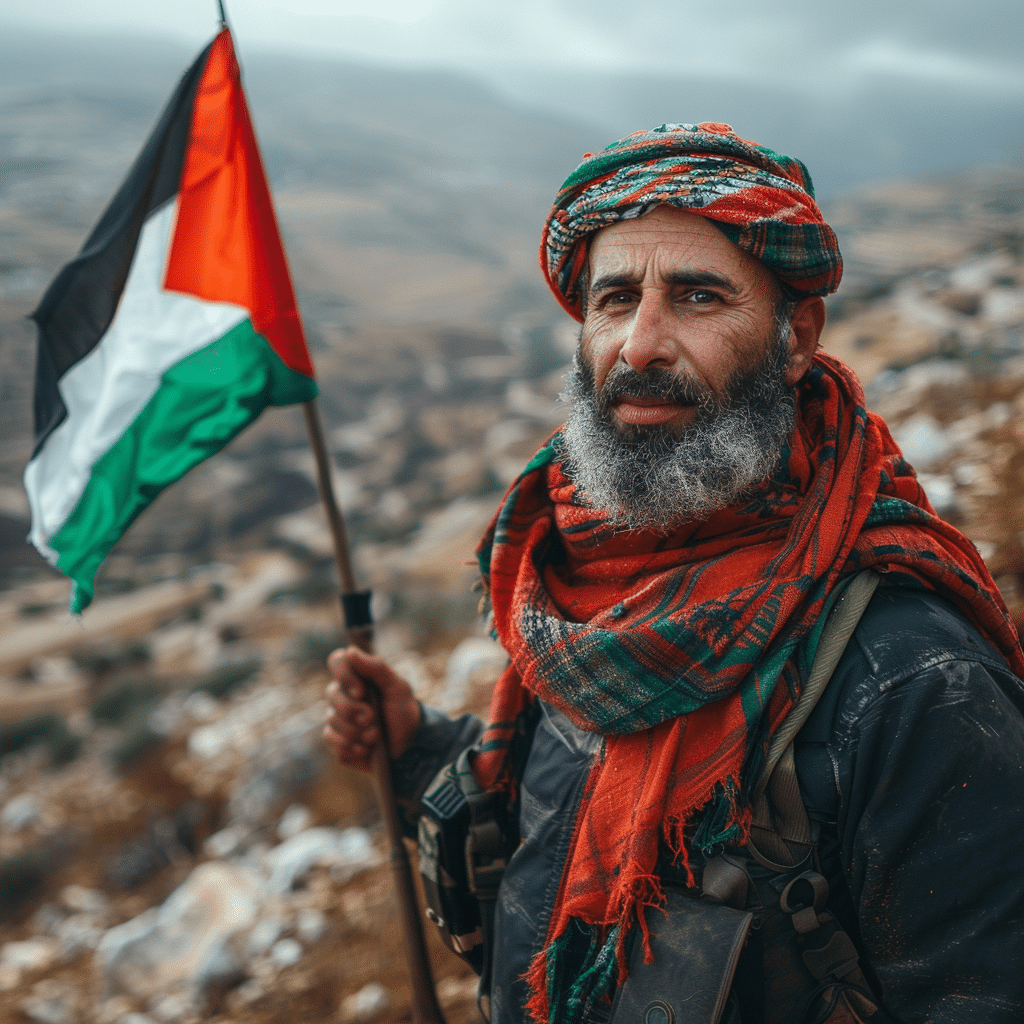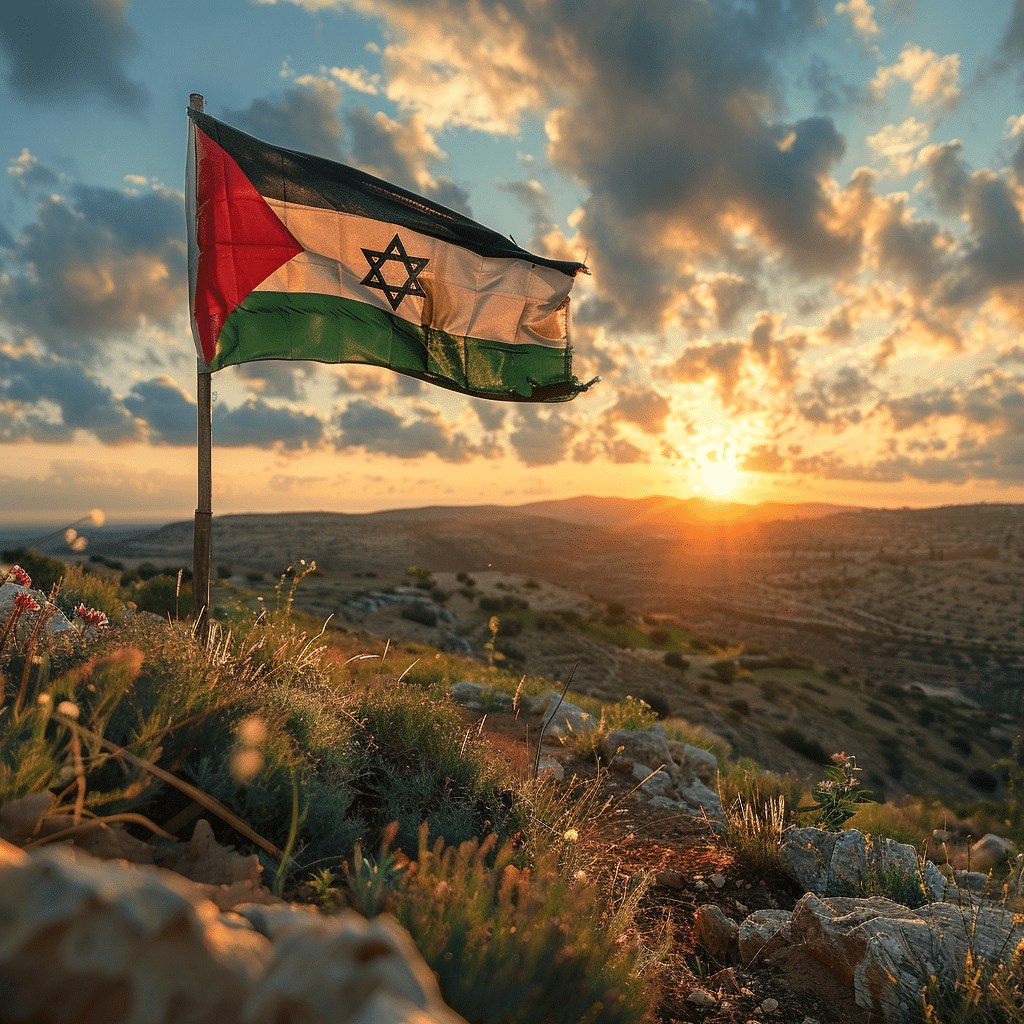What Language Do Palestinians Speak in 2024?
Palestinians are often spoken of in terms of their rich cultural history and unwavering resilience, but a fog of misunderstanding tends to cloud the details when it comes to their language. In this deep dive, we’re marching into the heart of the rich linguistic landscape of Palestinians. We’ll sift, scrutinize and celebrate the intricate dance of historical and contemporary factors that sculpt their unique mode of communication.
The Primary Voice of Palestine: Modern Standard Arabic and Its Local Variants
At the very core of Palestinian dialogue beats the pulse of Arabic—Modern Standard Arabic (MSA) to be precise. MSA is the formal star of the show, gracing governmental, educational, and media platforms with its presence. Yet, the chatter in streets and homes is cast in a different hue, awash with local flair and colloquial gems that give life to Palestinian Arabic. With a storied lineage that nods to Byzantine, Ottoman, and British influences, this dialect touts characteristics marking it as distinct yet intimately familiar to its speakers.
The nuances of this vernacular are stark versus other Arabic dialects; its charm lies in its ability to weave a tapestry of unity across a people dotted with diverse legacies. We’ll wade through the linguistic intricacies to really understand how Palestinian Arabic acts as a linchpin of cultural coherence.

A Glimpse into the Linguistic Diversity of Palestinian Regions
Peering into the Palestinian territories reveals that the dialects aren’t monolithic. Gaza Strip’s speech differs from that of the West Bank, and every city and village adds its own zest to the lingo—like a family recipe passed down through generations, each bearing the distinct signature of its contributors.
These aren’t just trivial chatters for linguists to mull over. No, indeed! They strut along, showcasing the tides of human movement and epochal sovereignties that have embroidered their presence into the language. Let’s unzip these regional dialects and uncover their pivotal role in the social fabric of Palestine.
| **Aspect** | **Details** |
|---|---|
| Primary Language | Palestinian Arabic |
| Region | West Bank, Gaza Strip, Israel |
| Speakers | Primarily spoken by Palestinians including Arab citizens of Israel |
| Dialect Group | Levantine Arabic subgroup |
| Intradialectal Distinctions | Rich intradialectal distinctions influenced by sociohistorical factors |
| Geographical and Cultural Coexistence | Palestinian Arabic and Israeli Hebrew coexist in Israel both as mother tongues |
| Historical Language of Palestinian Jews | Jewish Palestinian Aramaic (from 3rd/4th century CE to last centuries of the first millennium) |
| Characteristic Features | – Conservative stress pattern similar to Classical Arabic – Unique dialect compared to other Levantine Arabic dialects |
| Related Languages | – Modern Standard Arabic (used in formal contexts) – Israeli Hebrew (due to geographical and cultural proximity) – Historical relation to Jewish Palestinian Aramaic |
| Literacy and Formal Use | Modern Standard Arabic is typically used in formal writing and official documents, while Palestinian Arabic is the spoken vernacular. |
| Language Status | While not officially recognized by any state as an official language, Palestinian Arabic is an essential marker of Palestinian identity and is widespread as the lingua franca among Palestinians. |
| Language Preservation | Palestinian Arabic is actively preserved through daily use, artistic expression, and education systems, albeit formal education often promotes Modern Standard Arabic for literacy. Efforts exist to maintain the language amidst political and cultural pressures, but it remains vibrant within the Palestinian community. |
The Influence of Hebrew on Palestinian Language Practices
Navigating the Palestinian-Hebrew linguistic dynamic is akin to following a complex dance, honed through years of geographic closeness and political conflict. Many Palestinians have cultivated proficiency in Hebrew—some out of necessity, others due to a wish to connect. The dialogues in areas brimming with Israeli-Palestinian interactions often shimmer with elements of both languages.
So, let’s dive into the depths of this phenomenon. We’ll tease out varying degrees of fluency and dissect the social and economic conditions prompting Palestinians to pick up Hebrew and wield it alongside their native tongue.

Bridging Communication Gaps: The Role of English in Palestinian Society
Boldly stepping onto the stage is the English language, shouldering notable significance in Palestinian day-to-day life. Being the go-to second or third languagen, its influence spans across academia to business sectors, with the internet being its widespread platform.
With the world becoming a tightly knit community, English paves the way for the Palestinian narrative to transcend borders. We’ll chart the trajectory of platforms like the Girlhood website, which exemplifies the Palestinians’ engagement in global initiatives, waving the flag for girls’ education and empowerment.
Palestinian Language in Media and Pop Culture: From News to “Dilbert”
When it comes to Palestinian media consumption, the language landscape is as variegated as their dialects. The sovereignty of Arabic does reign, yet English bulldozes its way into local preferences, sublimating the bilingual capabilities of Palestinians.
This climate nurtures a ground where even the hilarity of the Dilbert cartoon today isn’t lost in translation. The jest and wit of office culture, encapsulated in comic strips, find resonance within Palestinian society, signaling a robust affinity for diversified linguistic content.
Fostering Identity and Unity Through Language
Language, ever so quietly, crafts a sanctuary for history, selfhood, and collective memory. Whether in literary classics or ordinary chatter, Palestinians cradle and celebrate their identity with every word articulated. It’s in the perpetuation of their dialect that they fashion an indomitable spirit and mold a sense of solidarity amidst political upheaval and diasporic currents.
Navigating the Future of Palestinian Linguistics
Peering into the horizon stirs questions about the future silhouette of Palestinian linguistics. Will political shifts and global currents reshape this verbal terrain? In this concluding section, we cast our gaze towards the horizons, laying out possible scenarios and celebrating initiatives that breathe life into the rich and intricate tapestry of Palestinian linguistic heritage.
An Insightful Linguistic Journey: Significance and Prospects
Traversing the depths of the Palestinian lingua franca offers more than just an academic jaunt; it uncloaks a vibrant fusion of history, culture, and the human will to persist. The Palestinian narrative, as articulated through their multifarious tongues, invites us into their world—one that effervesces with poise against the backdrops of struggle and persistence.
In closing, our linguistic voyage proves that for Palestinians, language echoes far beyond utility—it’s the embodiment of their undying spirit. It encapsulates their enduring place in the grand narrative of humanity, ensuring that their voice, imbued with the collective power of their words, continues to echo far into the future.
What Language Do Palestinians Speak: A Surprising Mix of History and Culture
Alright, let’s dive right into the heart of the Middle East. Who would’ve guessed that within the rich tapestry of Palestinian culture, the primary language is none other than Arabic? But, hold your horses, it’s not just any Arabic. Palestinians speak a local dialect that’s as unique as a young Cillian murphy performance, full of nuances and authentic flair. This specific brand of Arabic is influenced by the various civilizations that have passed through the region, making it a linguistic dish with more layers than an onion!
Speaking of spice, did you know that the variety of Arabic spoken in Palestine also has a sprinkle of Hebrew words? Yeah, you heard that right! It’s like the cast Of Warrior nun; a diverse crew, each member bringing their own special talents to the table. Now, ain’t that something? And just like the unexpected twists in the Rosewood movie, Palestinian Arabic has borrowed not only from Hebrew but languages like English, French, and even Turkish. This linguistic blend echoes the complex historical journey of the Palestinian people.
Now, you might be thinking, “How on earth do they keep it all straight?” Well, imagine them like Keith Morrison delivering a story; there’s a natural rhythm and flow to it, allowing them to effortlessly switch between words of different origins. It’s like grooving to a playlist of Prince Songs – seamless, yet each song has its own groove. And if that’s not impressive enough, consider this: among the young and tech-savvy like Erin Banks, you’ll catch a wave of English technical terms being tossed around in everyday chit-chat. That’s the linguistic equivalent of a chef throwing a pinch of exotic spice into an already zesty dish, wouldn’t you say?
So, next time someone asks you, “What language do Palestinians speak?” you can tell them it’s Arabic, with a twist! They’ve taken the Arabic language, played around with it, and made it their own – vibrant, dynamic, and as versatile as ever. And really, isn’t that just the most remarkable thing?

What language is mostly spoken in Palestine?
Palestinian Arabic is the primary language spoken by Palestinians. It’s a unique dialect of Arabic, widely used throughout Palestinian communities.
Do Israelis and Palestinians speak the same language?
While Israelis predominantly speak Hebrew and Palestinians primarily speak Palestinian Arabic, there is some language overlap due to geographical and cultural proximity. However, these two languages are distinct from each other.
What language did Palestinian Jews speak?
Historically, Palestinian Jews spoke Jewish Palestinian Aramaic from around the 3rd or 4th centuries CE until it was eventually replaced by Arabic several centuries later.
Is Palestinian Arabic the same as Arabic?
Palestinian Arabic is a dialect of Arabic and shares the same basic structure as standard Arabic, but with unique vocabulary, expressions, and pronunciation particular to the Palestinian region.
What are the top 3 languages spoken in Palestine?
The top three languages spoken in Palestine are Palestinian Arabic, Hebrew, and English.
What are the top 3 languages spoken in Israel?
The top three languages spoken in Israel are Hebrew, Arabic, and Russian.
What language did Adam & Eve speak?
The language spoken by Adam and Eve is unknown and not documented; it’s a topic of theological and mythological speculation rather than historical record.
Is Palestine an Arab country?
Yes, Palestine is considered an Arab region due to its Arab-majority population and cultural ties, though its political recognition varies internationally.
Is Palestine a country or part of Israel?
The status of Palestine is contentious: some nations recognize Palestine as a sovereign state, while others see it as a territorial entity within Israel or as occupied territories.
Did Jesus speak Hebrew or Arabic?
Historical evidence suggests that Jesus likely spoke Aramaic, which was the common language in the regions of Galilee and Judea during his lifetime.
What language did Jesus speak?
Aramaic, a Semitic language closely related to Hebrew, is the language that Jesus most likely spoke, as per historical and linguistic scholars.
Who lived in Palestine before Israel?
Before the establishment of Israel, the region known as Palestine was inhabited by a diverse population of Arabs, Jews, and others who had lived there for centuries.
Was Palestine a country before Israel?
The term ‘Palestine’ has been used for various geographic regions throughout history, but it was not a sovereign country before the establishment of Israel in 1948.
Who owned Palestine before the Arabs?
Before Arab control, the land that is now referred to as Palestine was part of various empires, including the Roman and Byzantine Empires, and before them, it was controlled by ancient civilizations like the Philistines and the Hebrew kingdoms.
Are Palestinians related to Egyptians?
Palestinians and Egyptians share some cultural and linguistic ties due to their common Arab heritage, but they have distinct identities and histories.
How many languages does Palestine speak?
Palestinians speak a variety of languages, but Palestinian Arabic is the most widely spoken language, alongside Hebrew and English, which are also commonly used.
Is Palestine a Spanish speaking country?
No, Palestine is not a Spanish-speaking country. Arabic is the predominant language.
What percentage of Palestine speaks English?
A significant portion of the Palestinian population speaks English, especially within the education sector and among younger people, although exact percentages vary across different areas.
How do you say hello in Palestine?
To say hello in Palestine, you’d typically use “Marhaba” or “Ahlan” in Palestinian Arabic, which are common greetings.



